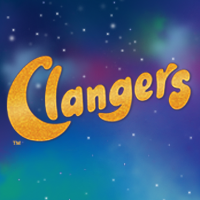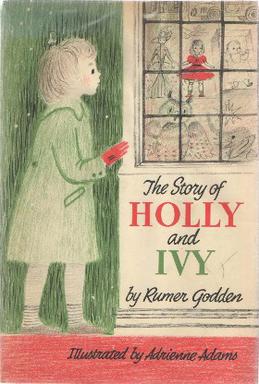Related Research Articles

Bagpuss is a British animated children's television series which was made by Peter Firmin and Oliver Postgate through their company Smallfilms. The series of thirteen episodes was first broadcast from 12 February to 7 May 1974. The title character was "a saggy, old cloth cat, baggy, and a bit loose at the seams". Although only thirteen episodes were produced and broadcast, the programme remains fondly remembered, and was frequently repeated in the UK until 1986. In early 1999, Bagpuss topped a BBC poll for the UK's favourite children's television programme.

Emily Jane Brontë was an English novelist and poet who is best known for her only novel, Wuthering Heights, now considered a classic of English literature. She also published a book of poetry with her sisters Charlotte and Anne titled Poems by Currer, Ellis and Acton Bell with her own poems finding regard as poetic genius. Emily was the second-youngest of the four surviving Brontë siblings, between the youngest Anne and her brother Branwell. She published under the pen name Ellis Bell.
Smallfilms is a British television production company that made animated TV programmes for children from 1959 until the 1980s. In 2014 the company began operating again, producing a new series of its most famous show, The Clangers, but it became dormant again in 2017, after production of the show was slightly changed. It was originally a partnership between Oliver Postgate and Peter Firmin. Several popular series of short films were made using stop-motion animation, including Clangers, Noggin the Nog and Ivor the Engine. Another Smallfilms production, Bagpuss, came top of a BBC poll to find the favourite British children's programme of the 20th century.

Clangers is a British stop-motion animated children's television series, consisting of short films about a family of mouse-like creatures who live on, and inside, a small moon-like planet. They speak only in a whistled language, and eat green soup and blue string pudding. The programmes were originally broadcast on BBC1 between 1969 and 1972, followed by a special episode which was broadcast in 1974.

Richard Oliver Postgate was an English animator, puppeteer, and writer. He was the creator and writer of some of Britain's most popular children's television programmes. Bagpuss, Pingwings, Noggin the Nog, Ivor the Engine, Clangers and Pogles' Wood, were all made by Smallfilms, the company he set up with collaborator, artist and puppet maker Peter Firmin. The programmes were originally broadcast by the BBC from the 1950s to the 1980s. In a 1999 BBC poll Bagpuss was voted the most popular children's television programme of all time.

Noggin the Nog is a fictional character appearing in a BBC Television series and a series of illustrated books, created by Oliver Postgate and Peter Firmin. The television series is considered a cult classic from the golden age of British children's television. Noggin himself is the simple, kind and unassuming "King of the Northmen" in a roughly Viking Age setting, with various fantastic elements such as dragons, flying machines and talking birds.
Peter Arthur Firmin was an English artist and puppet maker. He was the founder of Smallfilms, along with Oliver Postgate. Between them they created a number of popular children's TV programmes, The Saga of Noggin the Nog, Ivor the Engine, Clangers, Bagpuss and Pogles' Wood.

Ivor the Engine is a British cutout animation television series created by Oliver Postgate and Peter Firmin's Smallfilms company. It follows the adventures of a small green steam locomotive who lives in the "top left-hand corner of Wales" and works for The Merioneth and Llantisilly Railway Traction Company Limited. His friends include Jones the Steam, Evans the Song and Dai Station, among many other characters.

Margaret Rumer Godden was an English author of more than 60 fiction and non-fiction books. Nine of her works have been made into films, most notably Black Narcissus in 1947 and The River in 1951.
Pingwings is an animated black-and-white children's television series, comprising 18 ten-minute episodes, broadcast in the United Kingdom on ITV in three series of six programmes each, between 1961 and 1965. It first aired on Southern Television. Created by Oliver Postgate and Peter Firmin of Smallfilms, it starred a family of penguin-like creatures who lived at the back of a barn on the fictional Berrydown Farm. The Pingwing characters were knitted by Firmin's sister Gloria Wilson, and the animation was achieved using the stop motion technique.
Pogles' Wood is an animated British children's television show produced by Smallfilms between 1965 and 1967, first broadcast by the BBC between 1965 and 1968.
The Further Adventures of Sherlock Holmes is a series of radio dramas based on Arthur Conan Doyle's detective Sherlock Holmes. Written by Bert Coules as a pastiche of Doyle's work, the series was broadcast on BBC Radio 4 in 2002, 2004, 2008–2009 and 2010. There are sixteen episodes, all of them produced and directed by Patrick Rayner of BBC Scotland. Clive Merrison stars as Holmes, having portrayed the detective in a 1989–1998 BBC radio series of dramatisations of every Sherlock Holmes story by Doyle. Andrew Sachs appears as Dr. Watson, replacing Michael Williams after Williams died following the Radio 4 run of Sherlock Holmes adaptations. Each of the stories is based on a throwaway reference from an actual Doyle short story or novel. The first two series are repeated regularly on BBC Radio 4 Extra.

The Story of Holly and Ivy is a 1958 children's book written by Rumer Godden. On first publication it was illustrated by Adrienne Adams, but later editions were illustrated by Barbara Cooney; the British Puffin edition is illustrated by Sheila Bewley. The story treats the simultaneous events of wishing for love, in Ivy, a young orphaned girl, and Holly, a Christmas doll.
Sam on Boffs' Island is a British educational television series, made by the BBC, and aimed at developing the reading skills of 6- to 8-year-olds.

The Postgate family is an English family that has been notable in a variety of different fields. It originated in the North York Moors and records go back to land held by Postgates in 1200. Fields and a farm bearing the name still exist. The name is rare outside Yorkshire.
Faith Eaton was a major British doll and dolls' house collector, who published widely on the history, manufacture and care of toys. She was a founder member of the Doll Club of Great Britain, The Dolls' House Society and the Dollmakers Circle. Her archive is held at the V&A Museum of Childhood in London.
Daniel Raymond Postgate is an English script writer, author, and illustrator. Some of his books include Smelly Bill, Engelbert Sneem and His Dream Vacuum Machine, and Big Mum Plum. In 2014, he collaborated with Oliver Postgate’s business partner and other founder of Smallfilms, Peter Firmin on the production of a new series of The Clangers, with Daniel Postgate writing many of the episodes and voicing the Iron Chicken, The Soup Dragon, and her son, Baby Soup Dragon. He won a Bafta for his episode 'I am the Eggbot'.
Pinny's House is a 1986 animated television series produced by Smallfilms, produced by Oliver Postgate. The show is based on a series of books written and illustrated by Peter Firmin and focuses on the toys in a Victorian dolls' house. The programme premiered on 22 October 1986 as part of the BBC's See-Saw programming block.
Events from 1974 in England